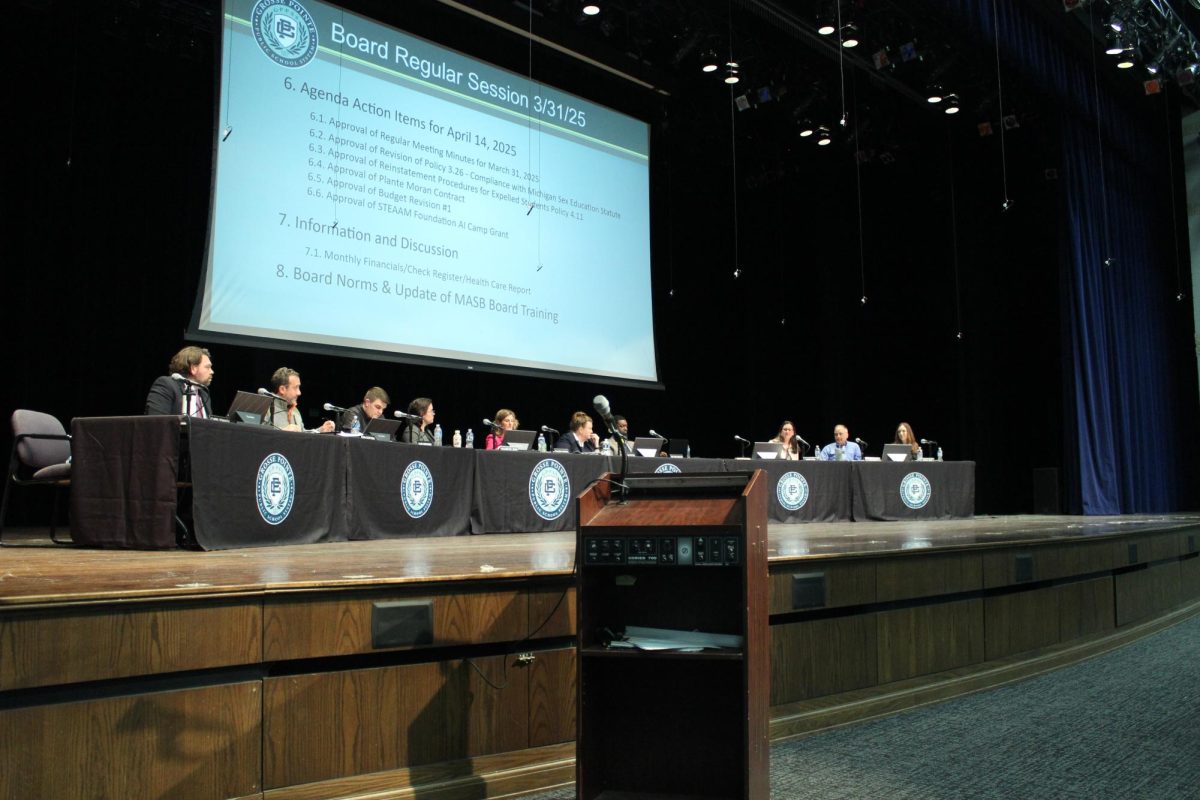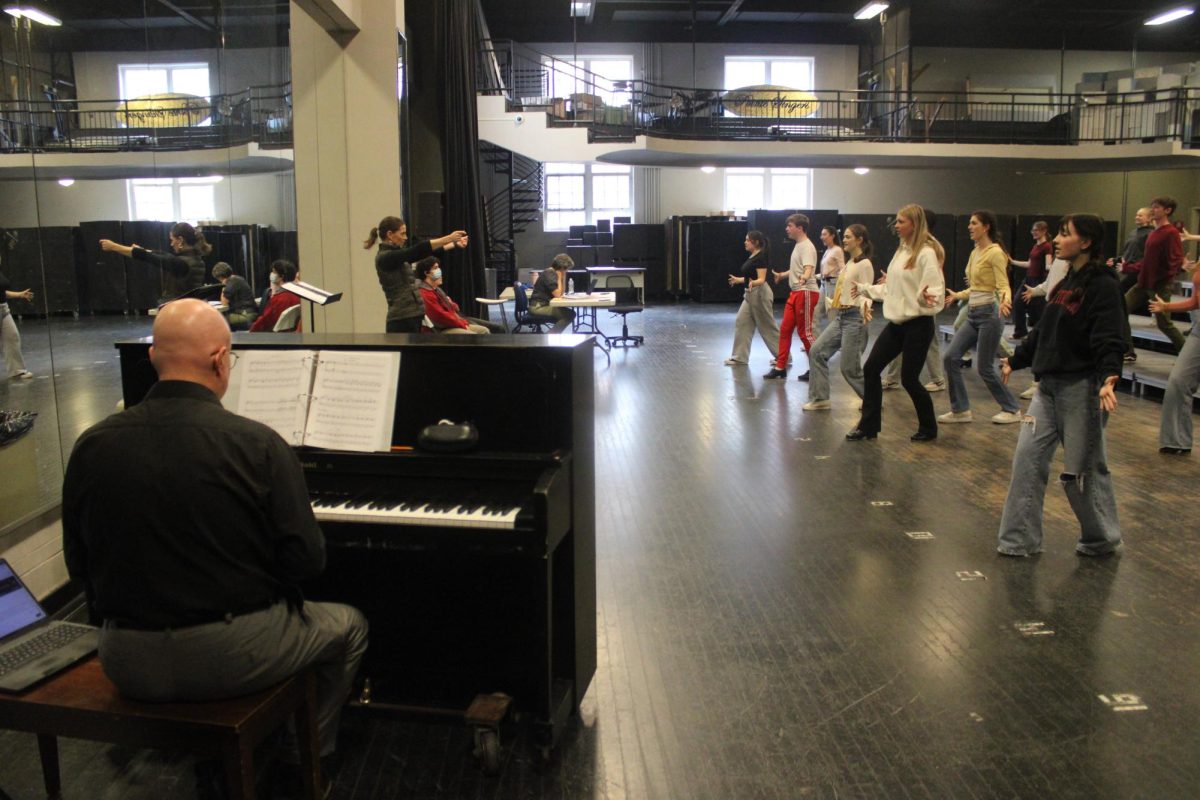The new year doesn’t only bring a new set of numbers, but rather a new set of ideas and goals, overall, a new way of living. It’s the turn of a new leaf that can also be a turning point in many people’s lives as they strive to create a better version of themselves. Setting goals is only the start to permanent change and growth. We name our upcoming goals as “New Year Resolutions,” but there’s a fine line between an achievable and unrealistic goal. People are often blinded by their enthusiasm, it’s hard to see the reality of their goals, but this can also bring the largest and strongest changes to one’s life.
When looking into the foreseeable future, trying to set goals can make us question what we are truly capable of. We might wonder, is this goal specific enough or is it even realistic? Students tend to question their capabilities, but according to Counselor Troy Glasser, it all depends on your mindset.
“Sometimes kids focus on outcomes, rather than behaviors,” Glasser said. “Like if you want A’s, don’t focus on the A, focus on what you can do to get the A, then it will usually come into play. Sometimes it doesn’t, but you’re getting better because you’re focusing on the behaviors.”
Resolutions are typically always successful or rewarding in some aspect, even when the end goal is not accomplished. They can help boost motivation, self confidence, and create better habits for the new and upcoming year. According to Glasser, he believes that overall, New Year’s resolutions are positive, but must be managed with a reasonable expectation.
“If someone wants to bench 300 pounds, they’re gonna work toward that amount of weight every single day,” Glasser said. “Don’t focus on the 300 pounds, focus on getting stronger everyday.”
The most difficult aspect of keeping a goal is giving yourself patience and time. Many people, especially students, expect the outcomes to appear out of thin air. It becomes a competition with yourself, and eventually a competition with others. School Psychologist Lisa Khoury believes that you should not base your goals off of other peoples.
“I think students can make anything competitive,” Khoury said, “If you choose not to share what your resolution is or isn’t, then that’s your business, and it takes you out of the competition. You have a choice as a student to engage with that pressure or not.”
The pressure is typically high for students in general, but extra added competition and unrealistic goals tend to elevate that pressure even more. Many overwork themselves in hopes of gaining more, when in reality they tend to suffer losses instead.
“Sometimes the goal can be unrealistic and not attainable by any living person, so I think that can create a lot of anxiety,” Khoury said. “Students have a higher level of anxiety in general these days, so setting a goal or New Year’s resolution that would be attainable and realistic is the better option, and to give yourself grace.”
A lot of the challenges students face with goals is not pressure and anxiety, but the fear of not reaching the goal in general. When facing failure, it leads many students to accept it and eventually give up. According to Social Studies teacher Kevin Minor, motivation is the key to success.
“Whether it’s new year or any other time of the year,” Minor said. “Change comes when people have made an intrinsic choice about making a real fundamental change.”
When setting long-term goals that take multiple months or even the whole year to achieve, you may tend to lose focus or not realize how far you have come with your goal. Minor said that measuring your goals can help with not giving up, and maybe adjusting them in the end to make them more attainable.
“The longer your goal is, the more you have to set kind of incremental bench posts to say that I wanna get to a certain progress point by a specific time,” Minor said. “So now you have a timeframe. When you get to that point you can look at your progress and adjust your goals from there depending on your accomplishments.”
When thinking of a student setting a goal, it can be looked upon as unrealistic due to the pile of tasks teenagers already have to deal with at this age. This makes certain goals seem difficult due to the circumstances of school and the limitation of freedom that minors or students have. Many students understand this struggle, such as Nate Michaud ’25.
“Resolutions fail because people set their expectations way too high,” Michaud said. “They expect immediate results, some things take time and patience.”
For most students, the biggest challenge is getting themselves motivated and determined. We see this in school, in sports and in everyday life. This is what makes resolutions especially difficult for teenagers to accomplish. When worked through and accomplished, the rewards are especially impactful.
“Proper goals can be great for boosting your confidence and motivation,” Michaud said. “When you work hard for your little goals, each success will give you enough momentum for the next.”
Success is the biggest motivator when it comes to resolutions. When you make one big step forward, you have more energy and ambition to make the next, then the next and so forth. Success unfortunately does not appear out of thin air. In order to make dreams reality, you need to work for it, which is especially difficult for students with their busy schedules. It takes a lot of strength, but in the eyes of Maddie Schwesinger’ 26, it is always worth it.
“I do know a lot of people that set resolutions and do achieve them,” Schwesinger said. “Honestly, it depends upon how much effort you put in and how bad you want your resolution to work out.”
Even when the hard work pays off, the biggest stride comes from the effort you put into meeting your goal. People don’t change from their resolution, but rather the journey they take to accomplish and meet it. The journey is how you’re able to create a better version of yourself, but only if you allow yourself to grow. If you give yourself time, grace and a goal that will allow a more successful version of yourself to flourish, then the changes will be endless, only if you have the right mindset.
“Your goals are only as good as your intention to see them through,” Minor said.













































































